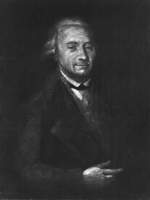Melchiore Cesarotti on:
[Wikipedia]
[Google]
[Amazon]
 Melchiorre Cesarotti (; May 15, 1730 – November 4, 1808) was an Italian
Melchiorre Cesarotti (; May 15, 1730 – November 4, 1808) was an Italian
 Melchiorre Cesarotti (; May 15, 1730 – November 4, 1808) was an Italian
Melchiorre Cesarotti (; May 15, 1730 – November 4, 1808) was an Italian poet
A poet is a person who studies and creates poetry. Poets may describe themselves as such or be described as such by others. A poet may simply be the creator (thought, thinker, songwriter, writer, or author) who creates (composes) poems (oral t ...
, translator and theorist.
Biography
He was born inPadua
Padua ( ) is a city and ''comune'' (municipality) in Veneto, northern Italy, and the capital of the province of Padua. The city lies on the banks of the river Bacchiglione, west of Venice and southeast of Vicenza, and has a population of 20 ...
, to a noble but impoverished family. He studied in the Seminary of Padua, where he obtained, immediately after the end of his studies, the chair of Rhetoric. At the University of Padua
The University of Padua (, UNIPD) is an Italian public research university in Padua, Italy. It was founded in 1222 by a group of students and teachers from the University of Bologna, who previously settled in Vicenza; thus, it is the second-oldest ...
his literary progress gained him the professorship of Greek
Greek may refer to:
Anything of, from, or related to Greece, a country in Southern Europe:
*Greeks, an ethnic group
*Greek language, a branch of the Indo-European language family
**Proto-Greek language, the assumed last common ancestor of all kno ...
and Hebrew
Hebrew (; ''ʿÎbrit'') is a Northwest Semitic languages, Northwest Semitic language within the Afroasiatic languages, Afroasiatic language family. A regional dialect of the Canaanite languages, it was natively spoken by the Israelites and ...
in 1768, and then of Rhetorics and Literature in 1797. As a supporter of the Enlightenment ideas, he wrote in favor of the French on their invasion of Italy in 1797; he received a pension, and was made knight of the iron crown by Napoleon I
Napoleon Bonaparte (born Napoleone di Buonaparte; 15 August 1769 – 5 May 1821), later known by his regnal name Napoleon I, was a French general and statesman who rose to prominence during the French Revolution and led Military career ...
, to whom he addressed a bombastic and flattering poem called ''Pronea'' (1807).
Cesarotti is best known as a translator and a theorist. His translation of Ossian
Ossian (; Irish Gaelic/Scottish Gaelic: ''Oisean'') is the narrator and purported author of a cycle of epic poems published by the Scottish poet James Macpherson, originally as ''Fingal'' (1761) and ''Temora (poem), Temora'' (1763), and later c ...
(Padua 1763 and 1772) attracted much attention in Italy and France, and raised many imitators of the Ossianic style. Napoleon particularly admired the work. As a professor of Greek at the University of Padua, Cesarotti also published a full translation of Demosthenes
Demosthenes (; ; ; 384 – 12 October 322 BC) was a Greek statesman and orator in ancient Athens. His orations constitute a significant expression of contemporary Athenian intellectual prowess and provide insight into the politics and cu ...
, and two different versions of Homer
Homer (; , ; possibly born ) was an Ancient Greece, Ancient Greek poet who is credited as the author of the ''Iliad'' and the ''Odyssey'', two epic poems that are foundational works of ancient Greek literature. Despite doubts about his autho ...
's ''Iliad
The ''Iliad'' (; , ; ) is one of two major Ancient Greek epic poems attributed to Homer. It is one of the oldest extant works of literature still widely read by modern audiences. As with the ''Odyssey'', the poem is divided into 24 books and ...
'': one faithful and literal, the other (called ''The Death of Hector'') was supposed to improve the text in order to adapt it to modern taste.
As a theorist and a critic, Cesarotti produced several prose works, including a ''Course of Greek Literature'', and essays ''On the Origin and Progress of the Poetic Art'' (1762), ''On the Sources of the Pleasure derived from Tragedy'' (1762), ''On the Philosophy of Taste'' (1784). His ''Essay on the Philosophy of Language'' (1785) is one of the most remarkable works in the field of linguistics written in Italy during the age of Enlightenment.
A complete edition of his works, in 42 vols. 8vo, began to appear at Pisa in 1800, and was completed in 1813, after his death.
Notes
References
* * Gennaro Barbarisi e Giulio Carnazzi (a cura di), ''Aspetti dell'opera e della fortuna di Melchiorre Cesarotti'', 2 volumi, Milano, Cisalpino, 2002. * Antonio Daniele (a cura di), ''Melchiorre Cesarotti'', Atti del convegno Padova 2008, Padova, Esedra, 2011. * Claudio Chiancone, ''La scuola di Cesarotti e gli esordi del giovane Foscolo'', Pisa, Edizioni ETS, 2012. {{DEFAULTSORT:Cesarotti, Melchiore 1730 births 1808 deaths 18th-century Italian poets Italian male poets Italian translators University of Padua alumni Academic staff of the University of Padua Translators of Ancient Greek texts 18th-century Italian translators